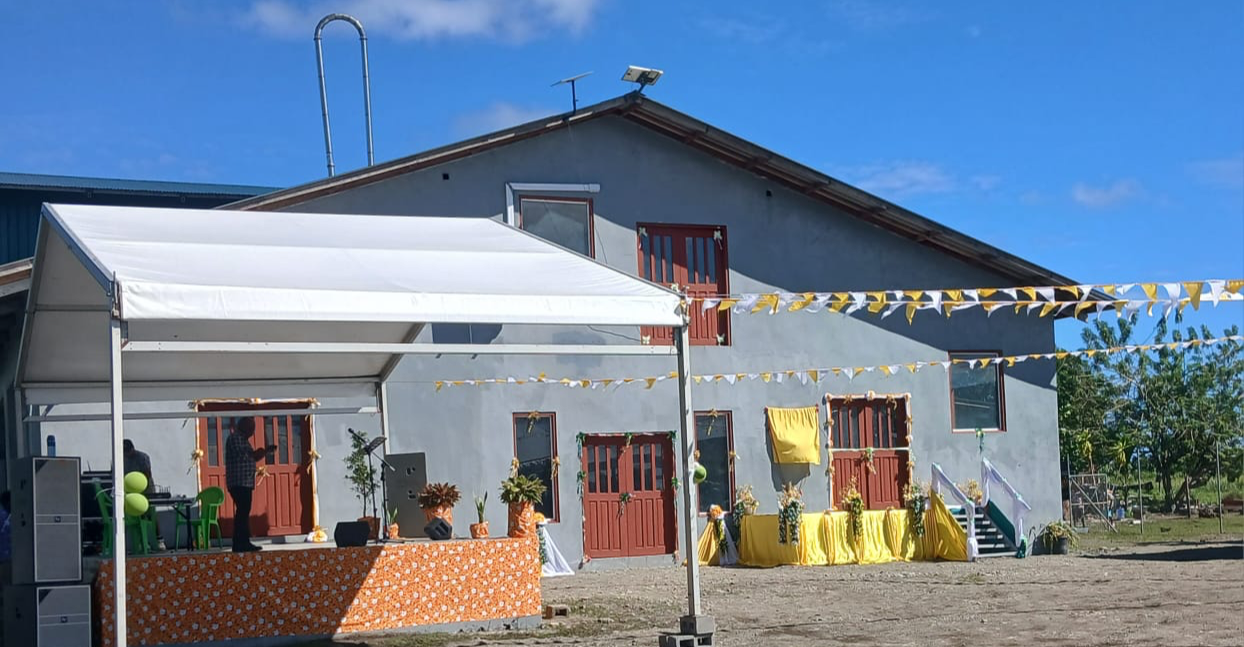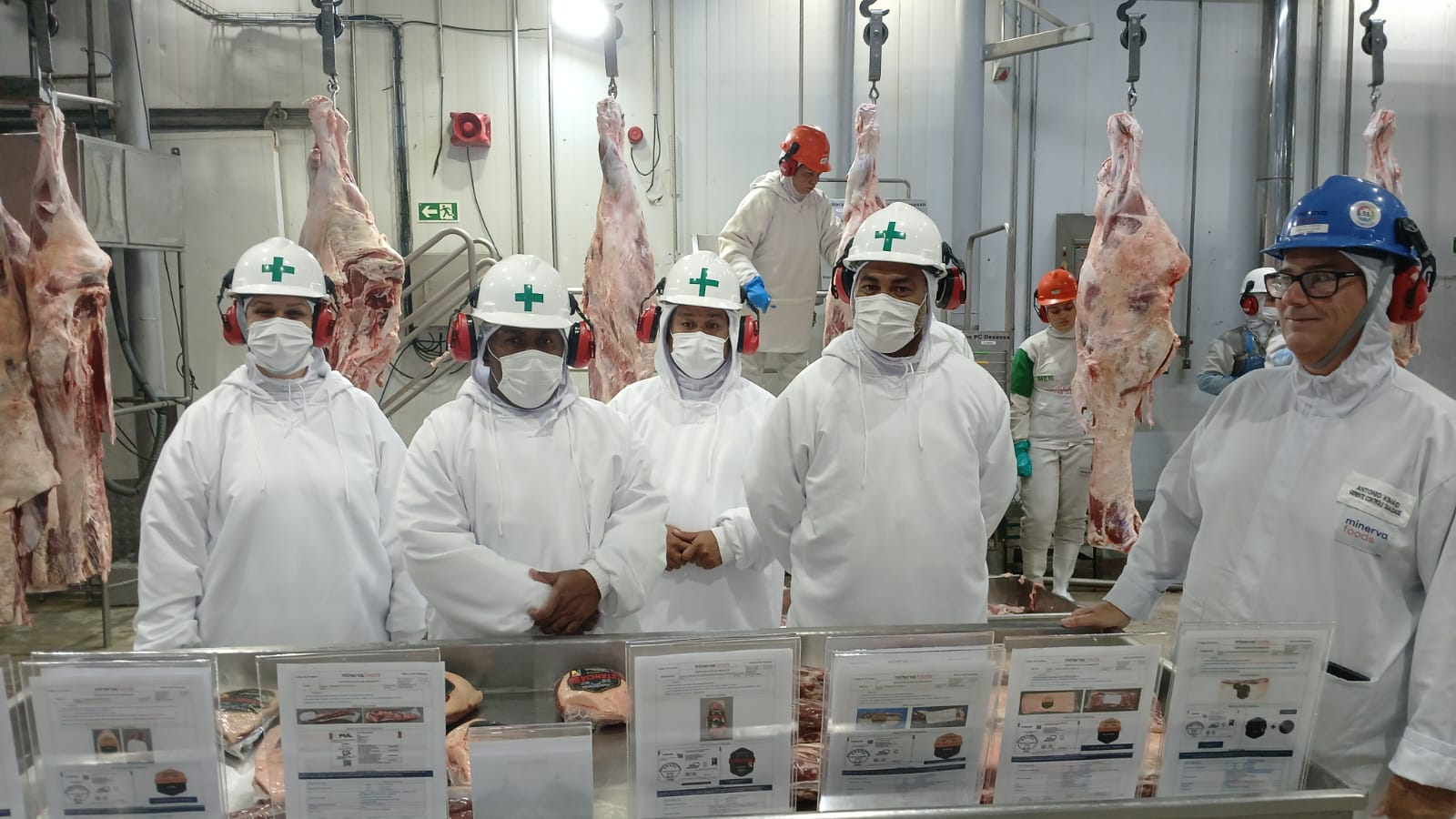It’s an emotional story of a journey that fills with determination, resilience, healing and vision by the founder and owner of Sape Farm – Dr. Paul Bosowai Popora.
The Sape Pack-house stands not just as a facility but as a legacy, shaped by hardship, healing, and an extraordinary life journey. At the heart of this landmark is Dr. Paul Bosowai, a medical doctor and the current Minister of Health and Human Resources Development.
His journey intertwines hard work, medicine, community service, and agricultural transformation.
“I grew up with nothing,” Dr. Bosowai shared emotionally. “I lost my parents when my siblings and I were young, and life was hard. But I found purpose through hard work.”
Originally envisioned as a ten-year development road-map, the Sape Farm project was realized in just three years through sheer determination, community support, and divine timing.
“It was supposed to take a decade,” Dr. Bosowai said. “But when the spirit moves and the people believe, time bows to purpose.”
Dr. Bosowai studied abroad, returning home with medical expertise and hope.
However, he was met with a sobering reality: the land where his family once bred cattle had been overtaken by weeds. His initial plans to register a farm temporarily shifted to constructing a health clinic to serve his community.
In 2016, he and his late brother Michael began cultivating ten hectares of land, laying the foundation for what would become Sape Farm.
“We started with bush knives and belief. Every inch we cleared was a step toward reclaiming our dignity.”
Unexpected support arrived in the form of a £20,000 gift from a UK family, inspired by Dr. Bosowai’s dedication to the Melanesian Brotherhood. This funding enabled him to purchase his first tractor.
Further progress came when he won tenders for machinery left behind by the departing Taiwanese farm.
He invested his savings of 85,000 SBD from his clinic and pledged to resign if successful.
He succeeded, marking a turning point.
When COVID-19 struck, the Ministry of Agriculture faced pressure to ensure food security.
In response to directives from the Prime Minister’s office, officials sought viable farms and discovered Sape Farm.
Despite losing a 700,000 SBD crop investment to floods, Dr. Bosowai led his community in resilience, building drainage by hand and learning to operate machinery through YouTube and manuals.
“The land was still here, and our hands still worked. So, we fought back—not with bitterness, but with action.”
The Packhouse itself emerged from hope and personal sacrifice. Although initially promised funding under the COVID grant, the project stalled. Dr. Bosowai withdrew 500,000 SBD from his account to build the foundation of the Packhouse.
The plan for the Packhouse was never documented on paper. He took on the role of the project foreman, rallying a team of carpenters he had helped train through vocational school. Under his leadership and with hands-on involvement, the Packhouse took shape.
Reflecting on his experience, he said, “They called me King Pharaoh for my strict standards and director for keeping morale high with food, betel nut, and cigarettes.”
Co-founded by the Ministry of Agriculture and Sape Farm—with support from the Enhanced Capacity for Agriculture Trade (ECAT) project under the Ministry of Foreign Affairs and External Trade and Strongim Bisnis—the total investment in the Packhouse amounted to 9.7 million SBD, with additional funds provided by the Australian Government.
The facility now features advanced cassava processing systems, including peelers, a hydraulic press, flash dryers, sieving chambers, and a blast freezer set to -18 degrees Celsius for export-grade production.
“It is a public-private partnership done right,” he said, “built not just on funding but on faith.”
Cassava farmers will soon earn 3.50 SBD per kilo, with products ranging from gluten-free flour to frozen grated tubers, both suitable for export and supporting local food systems.
Dr. Bosowai highlighted the health benefits of the flour’s low glycaemic index and encouraged livestock farmers to consider feed derived from cassava. “You give us cassava; we return cash and opportunity. This is not just a facility; it is a promise to every farmer who dares to dream.”
Dr. Bosowai’s journey, from medicine to cultivating a cassava farm, and from tractors to vision, is now anchored in a building he envisioned and constructed with his own hands.
“I used knives to clear and cultivate the land. Today, machines hum on the same soil. What began as a ten-year plan was realized in three years, proving that when purpose meets perseverance, destiny listens.”
By ANDRIANAH DELASALET KOLE
Solomon Star, Honiara





